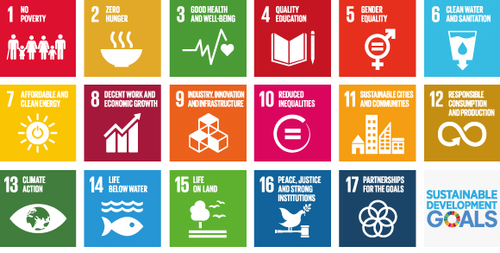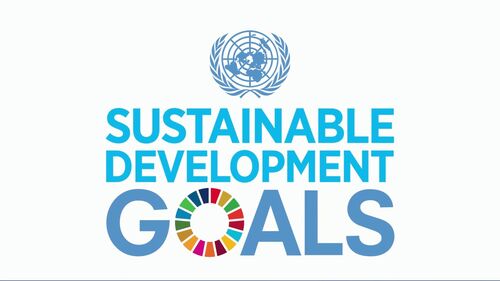According to official documentation, in implementing the seventeen Sustainable Development Goals (SDG), Ireland will be guided by two key principles:
- That every person is entitled to a life of dignity in which they can fulfil their full potential; and
- That the economic, social and environmental requirements of such a life are fundamentally linked and interdependent on each other. In putting these principles into practice, Ireland pledges that no one will be left behind and that we will endeavour to reach the furthest behind first.
Running from mid-July to mid-September, the Government, lead by the Department of Environment, Climate and Communications, ran an on-line consultation on the drafting of Ireland’s second implementation plan.
The United Nation’s seventeen SDGs are:
1. No Poverty, 2. Zero Hunger, 3. Good Health and Well-Being, 4. Quality Education, 5. Gender Equality, 6. Clean Water and Sanitation, 7. Affordable and Clean Energy, 8. Decent Work and Economic Growth, 9. Industry, Innovation and Infrastructure, 10. Reduced Inequalities, 11. Sustainable Cities and Communities, 12. Responsible Consumption and Production, 13. Climate Action, 14. Life Below Water, 15. Life on Land, 16. Partnerships for the Goals.
Within each goal there are targets. For example SDG 1.4 says “By 2030, ensure that all men and women, in particular the poor and the vulnerable, have equal rights to economic resources, as well as access to basic services, ownership and control over land and other forms of property, inheritance, natural resources, appropriate new technology and financial services, including microfinance.” Striving to emerge from the COVID-19 pandemic in a just and inclusive manner will be absolutely critical to achieving this goal.
While under SDG 4.4 it states: “By 2030, substantially increase the number of youth and adults who have relevant skills, including technical and vocational skills, for employment, decent jobs and entrepreneurship.” The world of work is changing and if people are not supported to adapt to and benefit from this change, a lot of them will be left with little or no decent work opportunities.
An important SDG for the INOU is SDG 8 which strives to “Promote sustained, inclusive and sustainable economic growth, full and productive employment and decent work for all.” Amongst the targets under this goal is 8.5, which aims to “By 2030, achieve full and productive employment and decent work for all women and men, including for young people and persons with disabilities, and equal pay for work of equal value.”
SDG 10 focuses on reducing inequality within and among countries. Under SDG 10.1 it states that “By 2030, progressively achieve and sustain income growth of the bottom 40 per cent of the population at a rate higher than the national average”. Striving to ensure that Ireland’s social welfare system supports people to achieve a minimum essential standard of living (MESL) will be vital in this regard and Budget 2022 must start to address this issue. To read the INOU’s Pre-Budget Submission please follow this link here.
While under SDG 10.3 “Ensure equal opportunity and reduce inequalities of outcome, including by eliminating discriminatory laws, policies and practices and promoting appropriate legislation, policies and action in this regard.” To fully realise this goal it will be really important for Ireland to include socio-economic status as an additional ground in our equality legislation.
